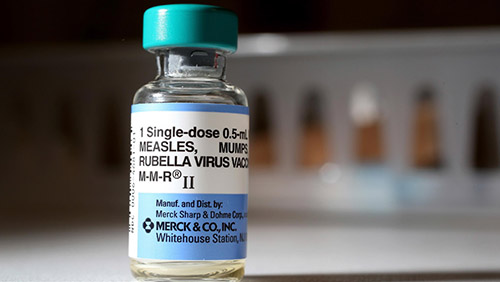
Measles cases have been on the rise in the United States, with 206 cases confirmed so far in 2019. Globally, over 300,000 cases were confirmed in 2018 alone. The virus is highly contagious and is spread through coughing and sneezing. Let’s learn a bit more about this serious but controllable viral infection.
Measles was first identified as a disease causing a constellation of symptoms back in ninth-century Persia. It wasn’t until 1754 that a Scottish physician named Francis Home was able to demonstrate that the symptoms were caused by an agent present in the bloodstream. He attempted to create a vaccine for the disease but his attempts were unsuccessful. The virus itself was not identified until 1954 when Drs. Peebles and Enders were able to isolate the virus from public school students in Boston, Massachusetts. Work on vaccine creation began almost immediately thereafter.
As mentioned earlier, the virus is extremely contagious. If a person with the measles is in a room, the virus particles can remain suspended in the air of that room and viable for up to two hours. The virus tends to infect about 90 percent of susceptible people exposed to it, susceptible being the key word here. A person with the measles is contagious from four days prior to developing the rash until four days after the rash appears. The initial symptoms are fever, cough, runny nose and pink eyes. The stereotypical red rash develops about three to five days later.
Fortunately, measles is easily preventable with a safe and easily obtainable vaccine that has been administered in the U.S. since 1963. One dose of the measles vaccine is 93 percent effective at preventing measles, and the booster dose increases that protection to 97 percent. In 1920, the first year for which public health records for measles are available, there were 470,000 reported cases of measles in the U.S. and 7,500 deaths. Since the year 2000, with widespread vaccination in place, there have only been 11 measles deaths reported.
The measles vaccine is the only preventative measure for measles, and there is no other medical treatment once infected. Fifteen separate studies involving 1.8 million children have found no evidence that the vaccine is unsafe or in any way linked to autistic spectrum disorders. Due to the extremely contagious nature of the virus, more than 95 percent of the population must be vaccinated to prevent outbreaks, such as the ones experienced in Ocean and Rockland counties last year. Public health authorities urge everyone to vaccinate their children at ages 1 and 4 to prevent the spread of this once-nearly-eradicated but still-dangerous disease.
By Robert Jawetz, MD
Dr. Robert Jawetz is a pediatrician at Tenafly Pediatrics.











